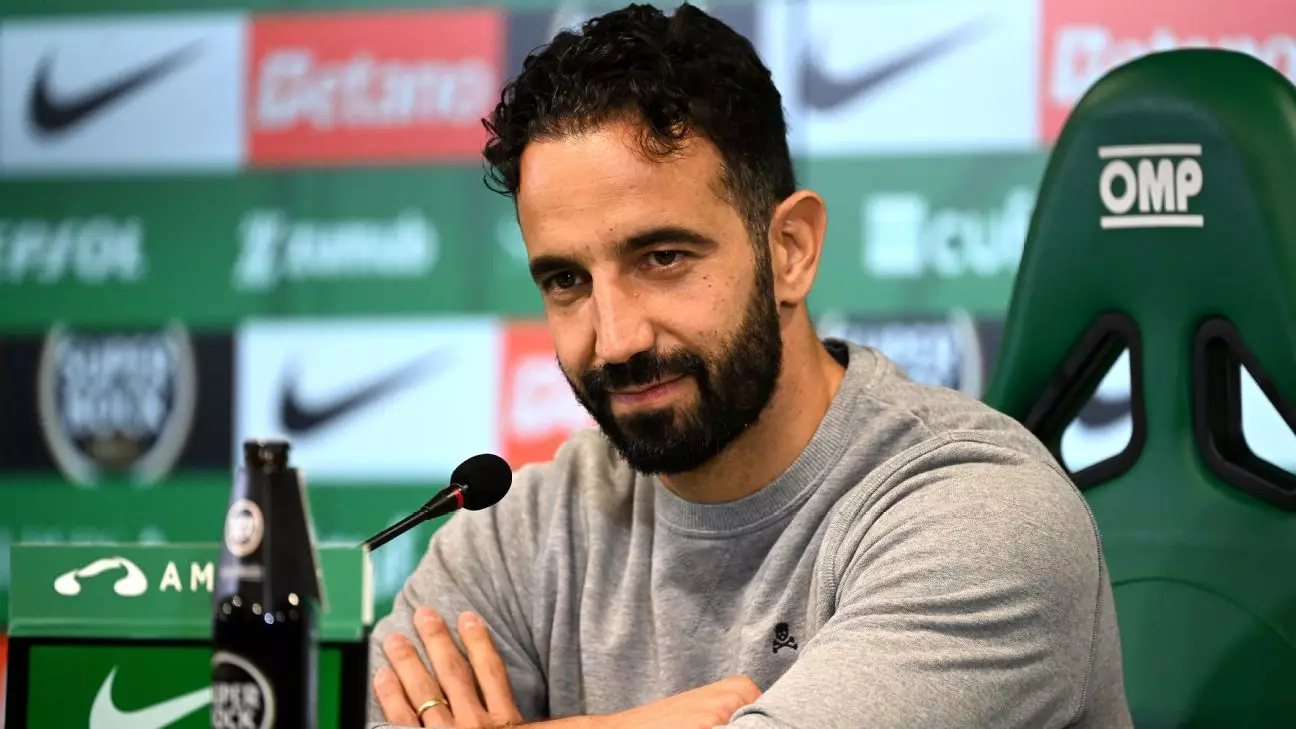In a significant decision, Manchester United has appointed Ruben Amorim as their new head coach, setting the stage for a transformative phase at the club. Amorim, who has signed a two-and-a-half-year contract, will officially begin his tenure on November 11, following his final matches with Sporting CP. This appointment marks a pivotal shift in the club’s strategy as they seek to regain their prominence in both domestic and European football.
One of the notable aspects of Amorim’s hiring is the distinction between his role as a head coach rather than a traditional manager. This change indicates a shift in how Manchester United approaches recruitment and player management. Unlike his predecessor, Erik ten Hag, Amorim will have a more consultative role regarding player contracts and retention, with the ultimate decision-making resting in the hands of CEO Omar Berrada, sporting director Dan Ashworth, and technical director Jason Wilcox. This delineation of responsibilities could shape the club’s future player acquisitions and retention policies.
Amorim will be faced with crucial decisions regarding key players whose contracts are nearing expiration. Victor Lindelöf and Christian Eriksen are among those whose futures are up for debate, as they are set to be out of contract by the end of the season. The club’s intention is to ensure that Amorim has ample opportunity to assess the squad’s dynamics before moving forward with contract renewals or renegotiations. Harry Maguire and Amad Diallo, while also under contract until the season’s end, have options for year-long extensions, which may be utilized based on their performances and adaptability to Amorim’s tactical vision.
One of the most anticipated changes under Amorim’s leadership is the team’s potential shift to a 3-4-3 formation. This tactical evolution offers an opportunity for players accustomed to varying defensive structures to showcase their versatility. Maguire, who previously excelled in a back-three system during his tenure with the England national team, could find renewed purpose in this formation. Conversely, Lindelöf, who had been on the cusp of leaving the club during the summer transfer window due to injuries, now faces an opportunity for resurgence, particularly with his familiarity with Amorim from their time at Benfica.
As the January transfer window approaches, the futures of both Lindelöf and Eriksen may come into sharper focus. With Lindelöf being free to negotiate with clubs outside the Premier League, speculation about a potential move to Fenerbahçe, under the management of Jose Mourinho, has begun to surface. Such movements could reshape the squad in a significant way, depending on the head coach’s evaluations and the club’s overall strategy.
Ruben Amorim’s start at Manchester United signals not just a new head coach but potentially a fresh approach to player management and team dynamics. As he prepares to make assessments on departing contracts, his insights will be vital in guiding the club towards a hopeful resurgence on the pitch. The results of these decisions will not only impact the current roster but could also define the identity of Manchester United for years to come.

